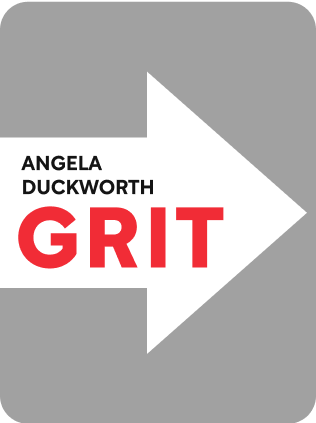

This article is an excerpt from the Shortform book guide to "Grit" by Angela Duckworth. Shortform has the world's best summaries and analyses of books you should be reading.
Like this article? Sign up for a free trial here .
What do you think is more important when it comes to success—talent or effort? What role does inborn talent play in achievement?
It was previously thought that many highly successful people were child prodigies or people born with natural talent and intelligence. However, Angela Duckworth, the author of Grit, dispels that myth and says that the most important trait that will lead you to success is grit— the combination of passion and purpose.
Here is why success is dependent on effort, and less so—on talent or luck.
How Effort Affects Success
In Grit, Angela Duckworth lays out her theory of grit in a quasi-mathematical equation that encapsulates why success is dependent on effort:
- skill = effort x talent
- achievement = effort x skill
In this formula, skill is created by applying effort to talent. Then, achievement is created by applying effort to that skill. In this way, effort factors in twice—it increases talent, and then it increases the application of that talent.
This means that between two people who work equally hard, the one with more talent will improve faster. But between two people of equal skill, the person who works harder will achieve more.
Another way to look at this formula would be:
- achievement = effort x (effort x talent), or: achievement = talent x effort2
Framing the equation this way allows us to graph it mathematically, giving us a simplistic model of how much a person might achieve based on inputs of talent and effort:
In this model, line A represents the achievement of someone with twice the talent of line B. When they both put in an effort level 1, Person A achieves twice as much as Person B. However, if Person A stops there and puts in no more effort, but Person B continues putting in effort, B can achieve twice as much as A, even though A has twice the talent.
This model has several implications:
- Someone of lower talent can catch up in skill level by applying effort.
- Even if someone never catches up in skill level, they can still achieve more by applying effort.
Consider an analogy: a low-talent painter, who is aware of the limits of her talent, works to improve her skill by taking lots of classes and creating many paintings. A higher-talent painter may start off making better paintings, but if she assumes her innate talent will propel her to success, she may put in less effort. After one year, the higher-talent painter might be making better paintings, but after two or three years, the lower-talent painter may eclipse her, and end up making better paintings and having a more successful career.
The same concept may apply to academics, athletics, career, and even social relationships.
| Reading Between the Lines: Talent Still Matters This graph points to two nuances of Duckworth’s theories: First, it counters critics who say Duckworth discounts the importance of natural talent. Second, it implies that given equal effort, talent matters a lot. Some critics of Duckworth point out that there are many highly talented people who’ve eclipsed the success of others who put in more effort, calling into question how important effort actually is. One famous example is long-reigning top chess master Magnus Carlsen, sometimes called the “Mozart of chess.” One study estimated the number of hours of deliberate practice he’s likely engaged in over his lifetime and concluded he’s practiced fewer hours than others who’d been less successful, refuting Duckworth’s insights. However, Duckworth never argues that talent is irrelevant. Her formula above for predicting skill argues that effort counts twice where talent counts once—but talent does count. What Duckworth’s equation shows, even if she doesn’t explicitly mention it, is that if Person A has outsized talent and also puts in a lot of effort, they can achieve more than Person B if Person B puts in equal effort—or even if Person B puts in just a bit more effort. To illustrate this, let’s examine the case of Carlsen. The authors of the study examining him argue that because he started playing chess at age eight while others often start at age four or five, Duckworth’s theories are wrong—he’s put in fewer hours over his lifetime but had more success. However, it shouldn’t be overlooked that Carlsen started playing chess seriously at age eight. He didn’t, for example, merely take up chess in college. Over the course of a career that stretches into adulthood, the time that his rivals may have devoted to their craft might not be significantly more than his—not enough to overcome their lesser talent, given that he, by wide agreement, is exceptionally talented. In fact, Duckworth herself would probably not dispute the study’s final conclusion, which states that deliberate practice by itself will not bring about high levels of performance. Nowhere in Grit does she say differently—what she argues is that talent can’t make up for a lack of effort, and that given equal talent, effort is the key to success. This illustrates a common theme in criticisms of her work. Her theories have been popularly misconstrued as arguing that effort alone is what matters, and that talent plays no part in success. However, her theories can be more accurately understood as disputing the popular notion of the naturally talented person who effortlessly stumbles into success. |

———End of Preview———
Like what you just read? Read the rest of the world's best book summary and analysis of Angela Duckworth's "Grit" at Shortform .
Here's what you'll find in our full Grit summary :
- How your grit can predict your success
- The 4 components that make up grit
- Why focusing on talent means you overlook true potential






